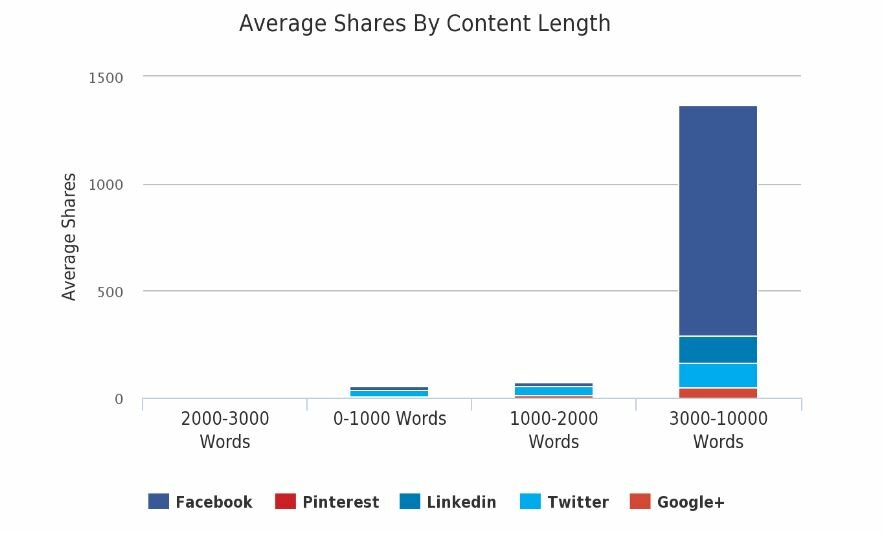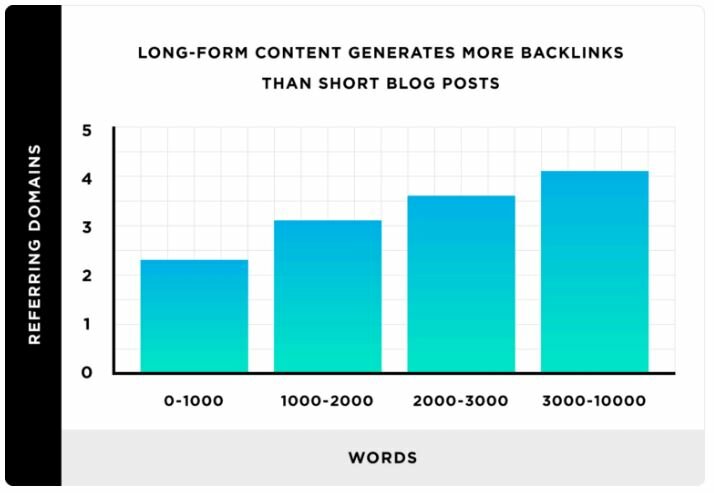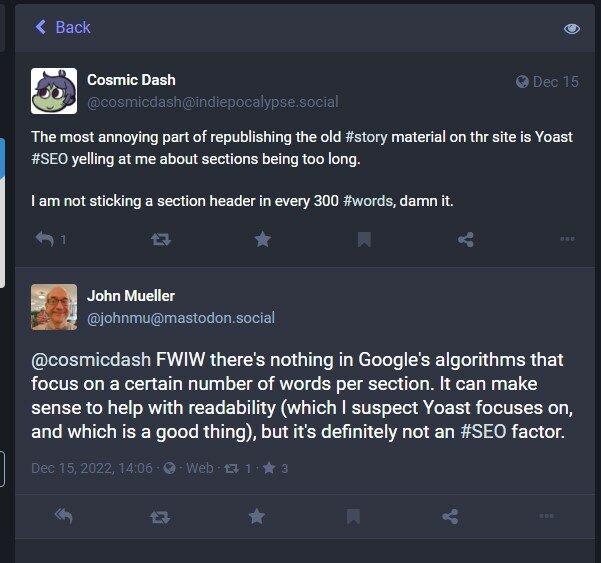If you’ve been blogging for while, I am sure you have come across this question many times.
You may always be wondering whether writing long content may help you to achieve a higher ranking on Google or not.
Here, in this blog post, we go to the bottom of these questions and discuss everything in detail.
So, What are we waiting for? Let’s dive right in to learn about how word count affects SEO.
- Word Count Affects SEO
- Research on Word Count or Content-Length
- What Google says about Word Count
- Google Search Essential Guide
- Why does long-form content rank higher in search results?
- Examples to understand the importance of long-form content
- Long-form vs Short-form content: Which will you Prefer?
- Frequently Asked Questions about Word Count
- Over to You
Word Count Affects SEO
If you’re running short of time, the answer to this question is simply ‘No’. Word count is not a ranking factor and it does not affect SEO.
Even Google through its representatives repeatedly states that ‘Word count is not a ranking factor‘. Writing long content does not mean your content will rank higher in the search result.
But, statistics never lie. There is evidence supporting the statement-‘Content length is a ranking factor’.
If you check the content length of the top 10 results of any search query, you will find the difference. You will only find blog posts with more than 700 words ranking in them. Right?
Have you ever wondered? Why is this so? If the word count is not a ranking factor, why does only long content appears on the top?
If you don’t know the answer, don’t worry. This blog post will help you. Trust me, at the end of this article, you’ll be in a position to answer all these questions.
Research on Word Count or Content-Length
Let’s start this with various research made on it. In past, Backlinko, Ahref, Moz, serpIQ, and Hubspot made a research on it. Their studies are as follows:-
On April 2012, serpIQ through their studies states that there is a drop in the content length when moving from the first position to the tenth in search results.

As per one study conducted by Moz, it was found that in-depth and detailed articles will get more social shares compared to others. In this research, the content length of an in-depth and detailed article was 3000 to 10000 words.

Backlinko analyzed 11.8 million results and found that long-form content generates more backlinks. Moreover, the average word count of the first-page results contains 1,447 words.

Similarly, an analysis was also made by Ahref and found that long-form content generates more backlinks compared to the short form. This research was based on analyzing 900 million web pages.
According to Hubspot, the ideal blog post length is 2100 to 2400 words. Such blog posts have a greater chance to rank higher in the search results. Moreover, 2500 words of content can easily generate leads online.
So, above all research clearly indicates a positive correlation between Word count and its ranking.
But, before coming to any conclusion, I suggest, please refer below statements been said by Google representatives publicly.
What Google says about Word Count
Google representative, Mr. John Mueller repeatedly told that Word Count is not a ranking factor.
In 2018, Mr. John Mueller said that:-
Word count is not indicative of quality. Some pages have a lot of words that say nothing. Some pages have very few words that are very important & relevant to queries. You know your content best (hopefully) and can decide whether it needs the details.
John Mueller through a tweet
Once again in 2019, John Mueller said that:-
Word count is not a ranking factor. Save yourself the trouble.
John Mueller on Reditt
In 2021, through English Google SEO Office Hours, Mr. John Muller said that Content length is not a quality factor and even a ranking factor.
Again, in 2022, John Mueller clearly said that there is nothing in Google’s Algorithm that focus on certain numbers of words per section.

So, Google through its representative Mr. John Mueller stated this multiple times that ‘there is nothing like the number of words per section in Google’s algorithms‘
Furthermore, Google’s official guidelines also do not state anything about the number of words in the search algorithm.
Google Search Essential Guide
It is worth noting that Google guidelines do not speak anything about the ‘Word Count’.
Moreover, while talking about spam policies, Google defines thin content as
- AI-generated content
- Doorway pages
- Affiliate programs with no added value for the user and
- Copied content from other websites or blog
At no place, the Google mention that a short article will be counted as thin content.
Why does long-form content rank higher in search results?
I know you may wonder if Word count is not a ranking factor then Why only long-form content only ranks higher in search results?
This is because Search results do not depend solely on one factor. Google algorithm uses more than 200 signals to rank your content in the search engine.
It may possible that long-form content may impact any of these signals and thereby your content got a higher position in it.
One such example is ‘Generating Backlinks‘.
As mentioned earlier in this blog post, long-form content generates more backlinks compared to short content. And, because of these backlinks, your content might get a higher position in the search results.
Next, long-form content includes more keywords in it. It may also cover the user’s intent properly.
And, chances are great that your content ranks higher in the search engine.
Needless to say, blindly adding more and more text to a page doesn’t make it better. It must be worth reading and also provides value addition to your readers as well.
Examples to understand the importance of long-form content
The following two examples will clear all your doubts about the long and short forms of content.
- If you want to present something to your client who walks in, what will you give- two pages brochure or a book? and
- If you’re looking for medical advice, will you prefer a short and simple answer or need in-depth details on it?
So, based on your requirements, the answer will differ. Right? Google also uses the same logic while evaluating your content online.
Based on user intent, it ranks the content in search results irrespective of the content length.
Of course, besides user intent, also use around 200 signals to rank your content online.
Long-form vs Short-form content: Which will you Prefer?
If you ask me which one I would prefer, my answer would be ‘Both’. Based on the user’s intent, I will decide if it’s more appropriate to produce long-form content or a short one.
If a user is longing for a solution to a particular problem, I will go with the short form of content. Whereas if a user is looking for detailed guide instructions, a long form of content will be my choice.
Frequently Asked Questions about Word Count
A. No, Word count does not affect SEO directly. However, it may affect it indirectly. For example, long-form content generates more backlinks and thereby chances are higher that your content will rank higher in search results.
A. Google representative, Mr. John Mueller repeatedly said that ‘Content-Length is not a ranking factor’.
A. Yes, but not because content length is a ranking factor. However, longer content generates more backlinks and includes more numbers of keywords in it. Next, because of these, your content may start ranking better in search results.
A. An ideal blog post length for SEO is 2000 to 2500 words.
Over to You
What do you think? Please let us know your thoughts on ‘Does Word count really matters for SEO‘ in the below comment box.
Next, if you need any help, please feel free to contact me or leave your message in the below comment section. I will be happy to help you.
